Despite historic revenue gains, California’s public schools are in financial trouble. While California’s public schools often suffer financial distress during recessions, their current plight is alarmingly taking place during an economic recovery and after a large tax increase. The principal cause is exploding spending on pension and retiree health care obligations.
State funding for schools is up nearly 60 percent compared to six years ago:
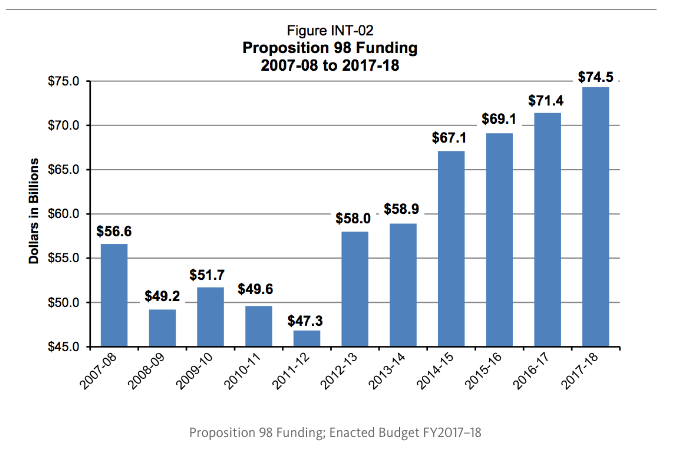
And spending per pupil now exceeds $15,000 per student:
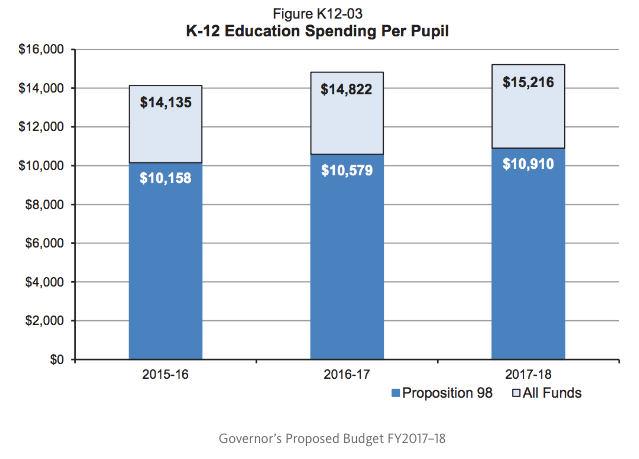
But less and less money is reaching classrooms because more and more money is being diverted to pensions and retiree health care. For example:
- San Jose Unified School District expects to cut 150 jobs because of what the Mercury News refers to as a “tidal waveof expenses” led by rising spending on retirement costs.
- The Los Angeles Unified School District has already suffered a 75 percent increase in spending on its educators’ pensions since 2013 and faces greater spending on both pensions and retiree healthcare down the road:
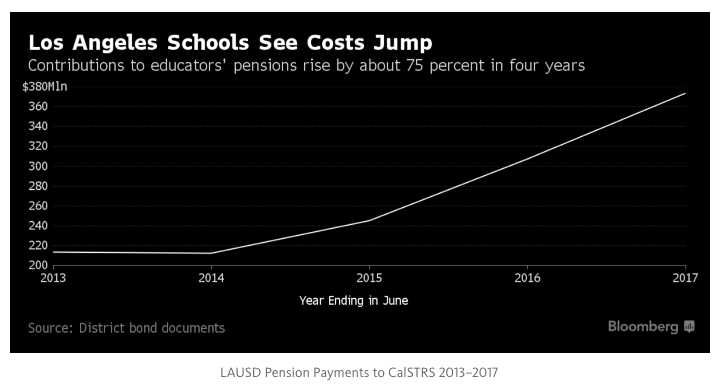
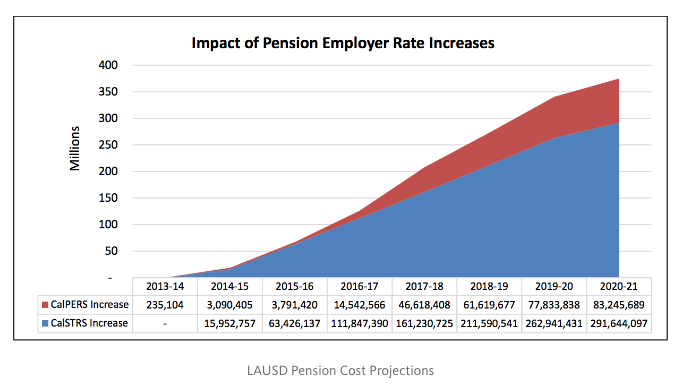
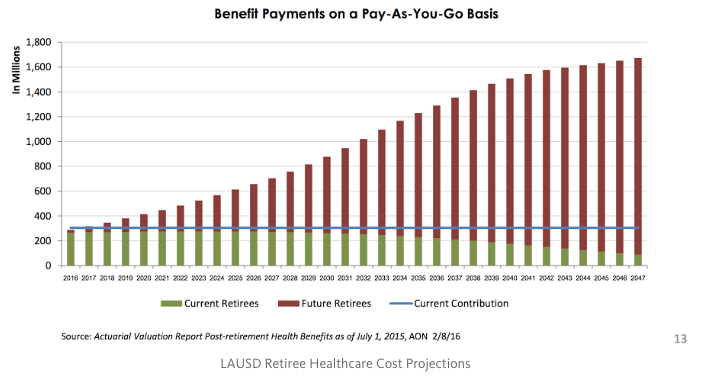
- Smaller districts are also climbing steep pension cost hills:
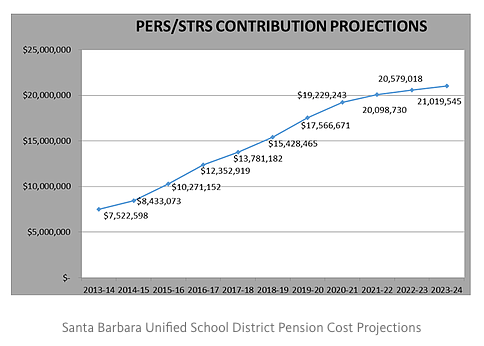
In total more than $250 billion will be diverted from California classrooms to finance unfunded retirement promises. That’s five times more than Bernie Madoff stole. Even the 2008 federal bank bailout doesn’t compare because in that case taxpayers got all their money back plus profits. The money already stolen in the Great California Classroom Robbery —it’s truly a theft, as explained below — will never be recovered and provides a devastating illustration of how “debt devours the future,” as Thomas Piketty puts it in Capital in the 21st Century. The victims are schoolchildren, young teachers and taxpayers.
The theft was — and continues to be — led by self-serving pension fund board members and elected officials. Defined benefit plans work wonderfully when they are truthfully pre-funded. But public pension fund board members and elected officials blocked truthful pre-funding. In doing so they gained billions of dollars for some public employees but at the expense of schoolchildren attending understaffed classrooms, taxpayers paying more in taxes for less in services, and current and future school teachers receiving smaller salary increases. They continue blocking truthful pre-funding now.
It’s well past time to act. The pension issue was easy to address a decade ago through truthful pre-funding, but that route was blocked. In 2015, then Attorney General Kamala Harris effectively blocked a pension reform initiative from the state ballot. Now it’s time for retirement plan beneficiaries themselves to step up. They didn’t cause the pension problem but neither did schoolchildren, young teachers or taxpayers who have already suffered tens of billions of dollars of negative consequences and stand to suffer much more. Plan beneficiaries also profited from untruthful pre-funding of their retirement promises, as explained here, and they are the only group that has been immune to negative consequences from the retirement cost explosion.
Ways in which beneficiaries could chip in include:
- Suspending benefit increases (such as automatic annual cost of living boosts) until pension funds reach healthy funding levels;
- Accepting less generous post-employment health care benefits and contributing more to those costs;
- Accruing lower pension benefits for years not yet worked. That’s the way defined benefit plans generally work. Beneficiaries lose none of the benefits they’ve accrued.
One example is Rhode Island, as the New York Times reports here.
Public employee union leaders should volunteer to lead this effort. Elected officials have been waiting for the California Supreme Court to rule on the MCERA case (see more here) before acting on pension costs but the school year starts in August and school districts need savings no matter how the court rules. California’s public schools host six million schoolchildren whose fate in a hyper-competitive world depends on high quality educations that cannot be delivered when billions of dollars are being diverted from classrooms to retirement debts. Those educations cannot wait. As the Economist wrote recently, “The secret to stellar grades and thriving students is teachers.” But California school districts cannot field enough great teachers with so much of their budgets being directed to retired teachers.
California school districts are in alarming financial distress during good economic times. Schoolchildren, young teachers and taxpayers have already taken it on the chin. The next economic slowdown will bring even greater distress. Retirement plan beneficiaries should chip in.

